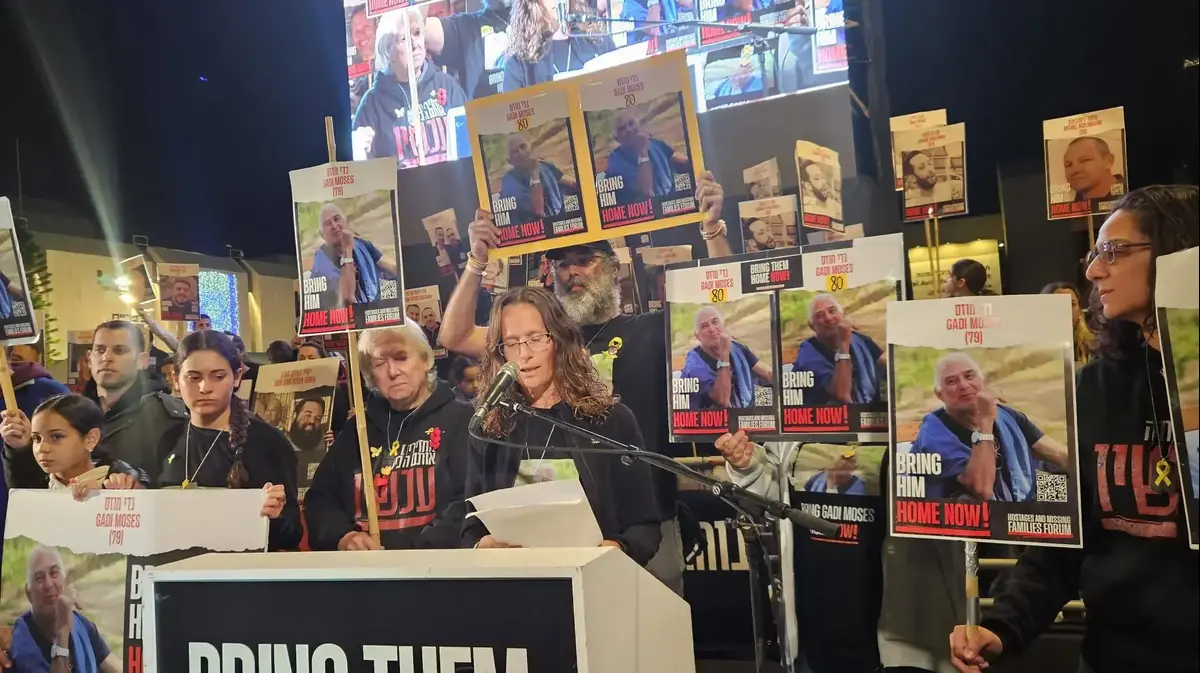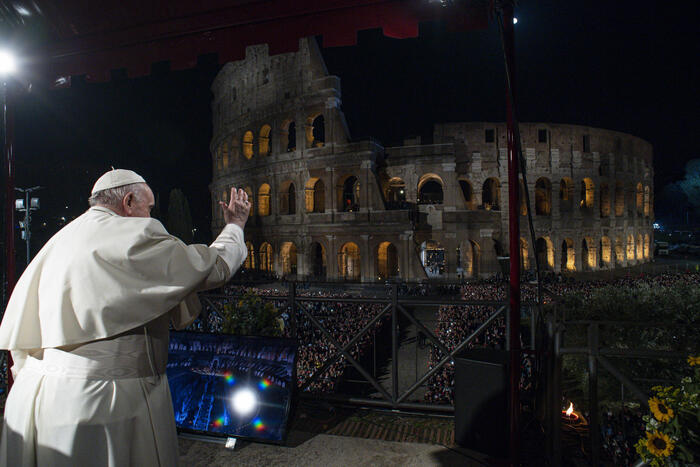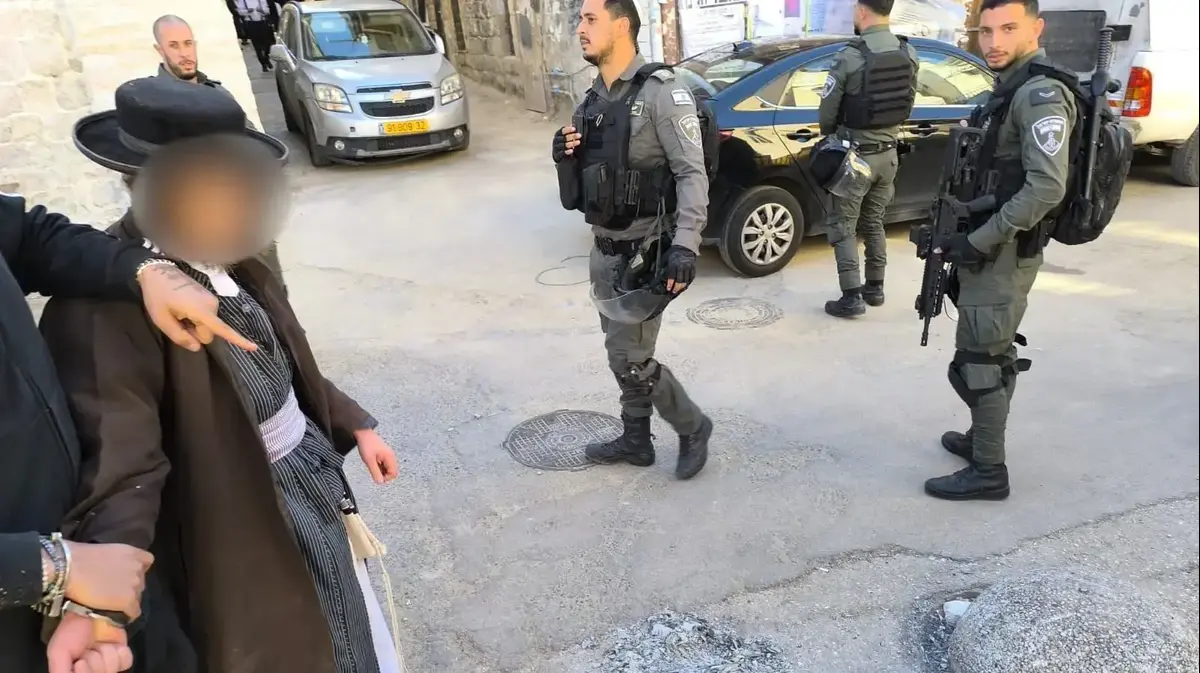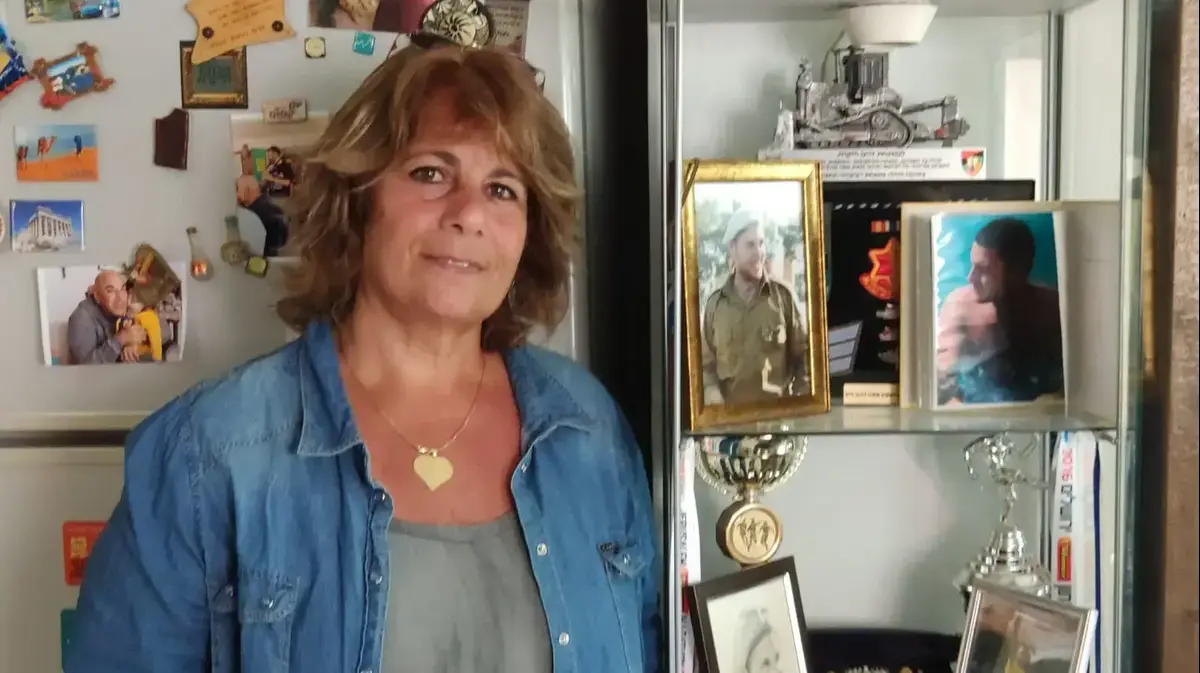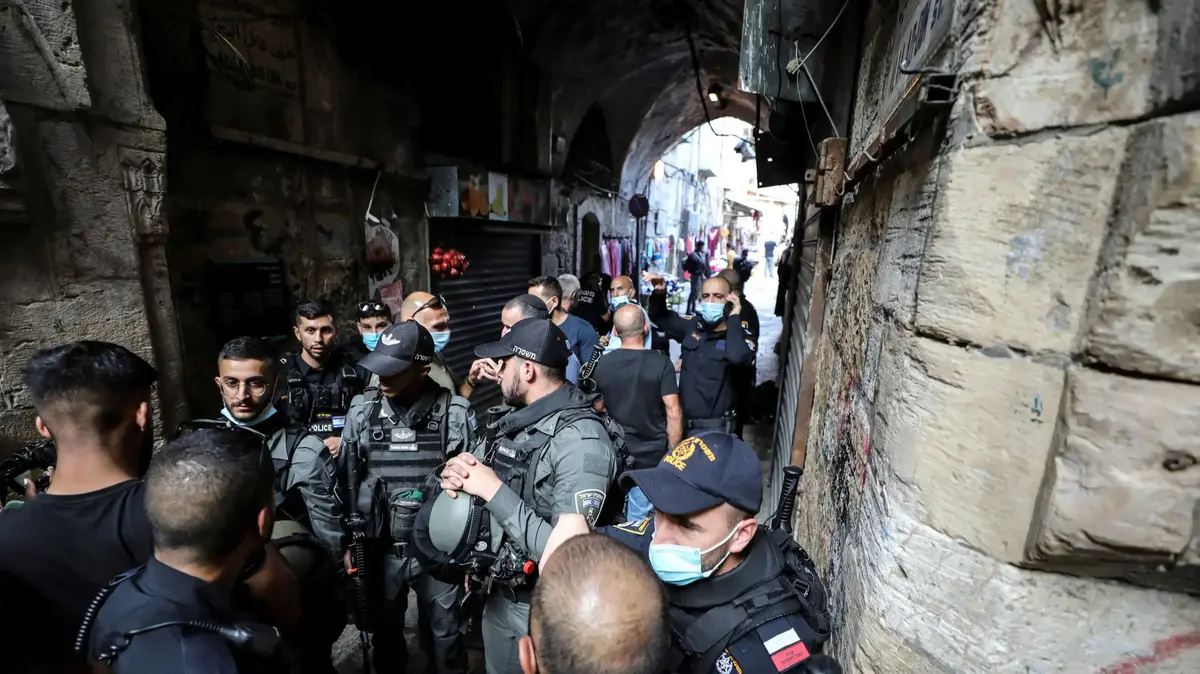Palm Sunday procession, this Sunday in Jerusalem.ATEF SAFADI / EFE
Waving palms and olive branches, between songs of Hosana!
With fervor as religious as nationalistic, hundreds of Palestinian Catholics recreated this Sunday, 1987 years later, the entry of Jesus into Jerusalem in accordance with the Christian tradition described in the Gospels.
The festive and showy procession that descends from the Mount of Olives to the Los Leones or San Esteban gate, east of the walled enclosure of the Old City, had hardly been interrupted each spring by wars or revolts.
Until a year ago the plague of the coronavirus broke out, confining the faithful, closing the borders to pilgrims and closing the temples of the Holy City.
"We Christians in Jerusalem needed to celebrate Holy Week again, to reunite as a family," confessed Xavier Shamies, 44, surrounded by his wife and three children at the Lion's Gate, guarded by a discreet display of the Israel Border Police (militarized body).
The participants in the procession of palms generally covered their mouths and noses with masks - mandatory under penalty of a fine - but they barely kept a safe distance, a practice that began to fall into disuse once the majority of adults had been vaccinated.
With more than half of the total population (9.2 million) immunized with the two doses of Pfizer-BioNTech, the resumption of the Holy Week processions in Jerusalem symbolizes the return to normality for those who depend on the health system of the Jewish state. , like the Palestinians with residence.
Until recently, the procession was still going inside in Jerusalem.
The traditional Lenten Stations of the Cross were broadcast online, in virtual parades along the Via Dolorosa commented by Franciscans from the Custody of the Holy Places, the oldest permanent Christian presence in the Holy City.
Without the company of the thousands of local and foreign faithful who followed him in 2019, the Latin patriarch, Archbishop Pierbattista Pizzaballa, set out from the sanctuary of Betfagé to the temple of Gethsemane, at the foot of the Mount of Olives, before enter Jerusalem through St. Stephen's Gate amidst songs and amidst a tide of palms.
“We are happy to be able to meet again on Christian Easter,” explained Shamies, an employee at a soft drink bottling plant, with his youngest daughter sitting on his knees, “but we miss our brothers from Palestine and the pilgrims from all over the world. the world".
In the cradle of Christianity, fewer than 200,000 Christians remain, of whom about 50,000 live in Palestine and the rest in northern Israel.
In the Holy City they were slightly more than 20% before the creation of the Jewish State, in 1948, but today there are only about 12,000, 1.5%, in East Jerusalem, which includes the Old City, under the occupation of the Israeli army.
The year 2019 broke a tourist record in Israel - which also controls the border crossings with the West Bank - with more than four and a half million visitors, of which a fifth were Christian pilgrims.
But tourism and organized religious travel have been banned for more than a year in Israel, which was first encapsulated to slow the spread of the pandemic, and now that of new variants of covid-19.
Some dozens of resident foreigners, such as diplomats and aid workers, nevertheless attended the procession after a year of suspension.
A tradition of generations
“Young people are going to continue to maintain the tradition of Palm Sunday as a holiday of our own.
It is our city, where our families have lived for generations ”.
The 28-year-old Catholic Niran Ashma assured it, before defining herself as a “nail artist”, in her manicure establishment in the Old City.
He showed in his hands a careful aesthetic work with pastel pink enamel.
Ashma kept a safe distance from the Lion Gate before the arrival of the head of the procession.
It used to be the time when young nationalists raised the Palestinian flag at the entrance to the Old City amid shouts for a state of their own and struggles with Israeli security agents.
“I have been accompanying women in my family.
My Palestinian feelings are in my heart, but this time we are not going to put ourselves in danger if violence breaks out, ”argued the young woman doing the manicure.
Israel returns to normal after a year of pandemic as lockdown is reimposed in Palestine
Netanyahu is left with no option to form a government in Israel
On April 25, the procession will be reissued on Palm Sunday for the Orthodox Christian community, the majority among Palestinians.
But now has been the time for the Roman Catholics.
The Basilica of the Holy Sepulcher - where Christian tradition places the crucifixion and burial of Jesus Christ - opened its doors to the faithful, which had remained sealed last year, for the first great ceremony of Catholic Holy Week.
At the end of the mass of blessing of bouquets and palms prior to the procession, the Latin patriarch recalled the sad ceremony of 2020, "without people and closed doors." "Now there are not many of us yet, but we are hopeful that things will get better," Pizzaballa expressed his best wishes, quoted by Reuters. "That is the message of this Holy Week, despite the deaths of the pandemic we believe in the power of love and life."

/cloudfront-eu-central-1.images.arcpublishing.com/prisa/NI7KAHG6DWVZWGI2GAYQAIDTWU.jpg)
